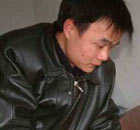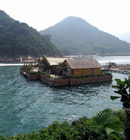Asia-Pacific
Pyongyang, Seoul talk on industry
By Zhang Jin (China Daily)
Updated: 2010-01-20 07:30
 |
Large Medium Small |
Pyongyang and Seoul held talks yesterday on the further development of the symbolic Kaesong industrial complex.
The industrial park at Kaesong is jointly managed by the Democratic People's Republic of Korea (DPRK) and the Republic of Korea (ROK) and is a key symbol of economic cooperation between the two countries, though tensions between the two have occasionally put operations there in danger.
Currently, about 110 ROK companies have a presence in the complex, employing about 42,000 workers from the DPRK in the production of labor-intensive goods.
In another sign of cooperation, reports have said the two countries will establish their first joint venture in another industrial zone in the DPRK.
The two sides met for nearly four hours in the DPRK's border city of Kaesong to assess their joint tour of industrial parks in China and Vietnam undertaken in December, according to Seoul's Unification Ministry.
Unification Ministry spokesman Chun Hae-sung described the talks as taking place "in a serious and practical atmosphere", AP reported.
Seoul stressed the need for a quick and easy system for border crossings and customs clearance, Chun said.
The DPRK said their recent surveys in China and Vietnam were positive.
The meeting followed signs of what appeared to be increased tension between Seoul and Pyongyang, including reports that the ROK had developed a contingency plan to deal with unrest in the DPRK. For its part, Pyongyang threatened last week to launch a "sacred nationwide retaliatory battle".
"Pyongyang's willingness to talk with Seoul on economic cooperation showed it has not shut all the doors," said Shi Zhan, a professor of international studies at Beijing-based China Foreign Affairs University.
"As usual, the DPRK is sending mixed messages, but it does not want to say no to talks," he said.
"The DPRK's move showed the hope of resuming the Six-Party Talks is still there because Pyongyang needs economic help from outside," said Liu Jiangyong, an expert at Beijing-based Tsinghua University.
Pyongyang quit the Six-Party Talks - which also includes China, Japan, the ROK, Russia and the United States - after the United Nations condemned its launch of what the DPRK claimed was a satellite in April, 2009.
In December, Pyongyang told visiting US envoy Stephen Bosworth that it was willing to rejoin multinational talks but did not give a timetable.
First DPRK-ROK JV
A company from the ROK said yesterday that it is planning a joint venture (JV) plant in a free-trade zone in the northeastern part of the DPRK.
Food processor Merry Company said Pyongyang approved its partnership with state-run Korea Gaeson General Trading Corporation last month. The two companies will work together in the Rason zone, near the DPRK's border with China and Russia, to develop a food processing plant.
"We're going to have a first joint venture between the two Koreas in Rason," Merry president Chung Han-Gi told AFP.
He said he would ask the ROK's Unification Ministry to approve the venture this week.
The DPRK established the Rajin-Sonbong Economic Special Zone in 1991, its first such project. The zone was later renamed Rason.










